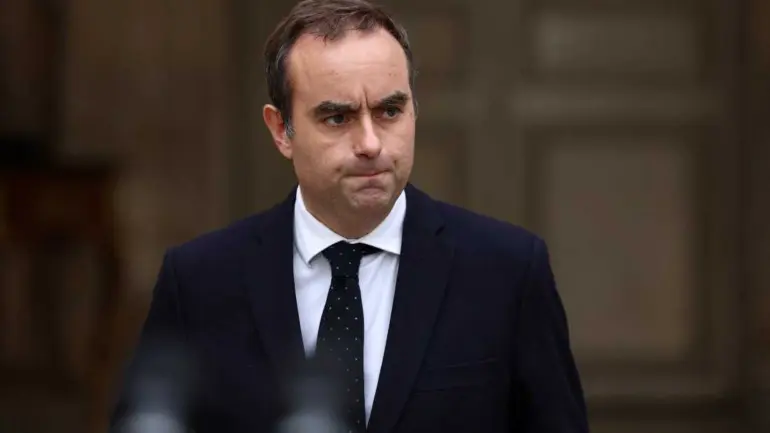France’s outgoing Prime Minister, Sébastien Lecornu, launched a last-ditch bid on Tuesday to secure cross-party backing for a new cabinet, in an effort to pull the country out of a deepening political stalemate.
President Emmanuel Macron tasked Lecornu, 39, with forming a new government in early September after parliament ousted his predecessor over an unpopular austerity budget. Lecornu unveiled a proposed cabinet on Sunday evening, but the lineup was swiftly criticized for recycling many figures from the previous administration. He resigned on Monday morning.
In a dramatic twist, Lecornu later agreed to stay on—at Macron’s request—to lead a two-day effort to salvage his administration and build a consensus.
Macron has mandated him to “conduct final negotiations by Wednesday evening to define a platform of action and stability for the country,” according to a presidential official who spoke anonymously. The official added that the president was prepared to “assume his responsibilities” should the talks fail, widely interpreted as a veiled threat to dissolve parliament and call fresh legislative elections.
Beginning at 9:00 a.m. (0700 GMT) on Tuesday, Lecornu was set to hold a series of meetings with party leaders at the prime minister’s office to try to bridge the impasse.
France has been gripped by political turmoil since mid-2024, when Macron called snap parliamentary elections that ended in a hung parliament. The current crisis further complicates the landscape ahead of the 2027 presidential election, seen as a turning point in French politics.
Far-right leader Marine Le Pen, whose National Rally (RN) party is gaining momentum, has called for both Macron’s resignation and immediate legislative elections. “It would be wise for him to resign,” she said on Monday, adding that fresh polls were “necessary.”
RN party president Jordan Bardella echoed her sentiments, declaring the party was “ready to govern.”
Within Macron’s own camp, frustration is growing. Former prime minister Gabriel Attal, who now leads Macron’s centrist party, publicly expressed confusion over the president’s recent decisions. “After so many new prime ministers, maybe it’s time to try something else,” he said on Monday evening.
Former premier and 2027 presidential hopeful Edouard Philippe also weighed in, criticizing the current state of affairs as a “distressing political game.” He urged Macron to call early presidential elections once the 2026 budget is passed.
Lecornu’s efforts to form a stable cabinet face serious obstacles. Socialist Party leader Olivier Faure called Monday for a “change of course” and demanded a “left-wing government.” Meanwhile, Bruno Retailleau, head of the conservative Republicans and outgoing interior minister, signaled cautious support for staying in a coalition with Macron’s centrists—so long as his party retains sufficient influence.
Lecornu’s two predecessors, François Bayrou and Michel Barnier, were also pushed out by parliament amid disputes over fiscal tightening. Any new prime minister will face the same uphill battle in passing the controversial spending bill, with Macron’s bloc lacking a parliamentary majority.
The crisis comes as France grapples with a record-high public debt. The country’s debt-to-GDP ratio now ranks as the third highest in the EU—behind only Greece and Italy—and nearly double the 60% limit set by EU rules.
While Macron has so far resisted calls for early parliamentary elections and ruled out resigning before his term ends in 2027, he may be forced to name a new prime minister—his eighth since taking office. But without a radical shift in approach, even a new face could struggle to survive in the current political climate.
AFP


